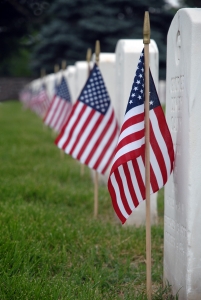Often when the anniversary of the 9/11 attacks rolls around for the past half-decade we’ve very cursorily glanced over what happened that day, remembering fuzzy memories and accounts we can recall, and then filling the rest in with 24 hour news coverage of the planes going in and out of the Twin Towers again and again in some sadistic version of Groundhog Day only to be intermittently interrupted by commercials to go out and buy toothpaste and jewelry—or something of that nature. Very rarely, though, do we question the proceeding events that have led us to this moment in history without becoming outraged that anyone would try to disrespect the memory of those lost on 9/11, and it in many ways has become a polarized debate on whether or not anything could’ve been done differently.
Yes, we should remember those lost and the lasting impact it had on our country, and mourn for what was snubbed out by a fringe group of terrorists. But mourning and war are the not a logical equation that go together. No one really experiences some great travesty and then goes out and wages a war on the perpetrators and people that somewhat look like the perpetrators. Instead it’s a common occurrence that those who are mourning allow the legal system to work its course and for those responsible to be brought to justice. The events proceeding 9/11 did not follow such a formula, but rather endorsed a militant, reactionary response that propelled our country into a seemingly endless war with two countries (Iraq and Afghanistan), and perhaps more in the near future, that had absolutely nothing to do with the terrorist attacks of 9/11—no conclusive evidence has yet to be provided to even suggest that these two countries even supported in any way al-Qaeda.
Instead there’s a plethora of evidence collected and archived that definitively suggests that a majority of Arab nations condemned the terrorist acts perpetrated on 9/11 and in no way endorsed what happened. What there is evidence is the fact that these nations did not want us there. And yes, more than likely Iraq did have weapons of mass destruction as we feared, and possibly even posed a threat to a few countries around them (but definitely not the US). But it’s absolutely ridiculous to suppose that we just gave them plenty of times to hide, or get rid of, these WMDs. How? No one has yet to suggest a plausible way in which they hid these weapons without anyone noticing. And to elucidate even further, it was actually our government and military that provided Iraq with these WMDs back in the early nineties when Bush, Sr. was in office.
But that’s beside the point, for the most part. Instead it’s time that we stop associating this revitalized, 19th-century form of patriotism to the cause of why we invaded these countries rather than going after the ones responsible and attempting to try them for their war crimes—which the Geneva Code is very explicit in defining what a war crimes as being “a grave breach of any of the international conventions set forth in August 12, 1949.” Of course there are differentiations of the specifics, but the gist is still resolutely a crime conducted by international parties in a gross misconduct of the established codes of diplomacy set up by the Geneva Convention. The terrorist attacks can easily be defined under such terms on multiple counts. And while many members of terrorist groups sit in jail, and that’s fantastic, the fact remains that we went beyond our powers in attempting to round them up, killing thousands of civilians and in the process condoning our own military to become terrorists themselves on multiple occasions.
Often, though, we hear that if you don’t support the troops then you don’t support freedom, or some ridiculous syllogism that beats even the grand master Aristotle’s argument of why slaves are slaves—which is to say that it’s entirely circular and without any merit. A military at no point in time fights for the rights and freedoms of the people. They can often insure them through defeating a foreign threat against the States. Iraq and Afghanistan, though, were no foreign threat. The War on Terror did not represent such a cause of protecting rights, but rather became an outright assault on the civil liberties of citizens in other nations. As the name suggests, it was a war on ideology and thought, most concretely directed towards Arab nations with the occasional Oriental nation (North Korea) to make it seem as if it wasn’t entirely racist. Since the war, though, public opinion, as shown by multiple polls, has not suggested that people feel freer and that their civil liberties are being protected. The exact opposite is being shown. And while that is more so a product of the Patriot Act and similar legislation, the War on Terror does symbolize a lasting and continual fight that cannot be won and will assuredly prove to limit more and more the freedom of our nation.
 To give an example of past terroristic attacks and similar government responses, we don’t have to look much further than our nation’s previous tenants: the UK. More specifically, with the conflict of the IRA against the British government. Without going into great detail, the IRA constituted a paramilitary group that conducted decades worth of terrible terroristic crimes that more than surpass the 9/11 attacks in terms of impact on the UK and body count. And so of course, Britain responded very instinctually with violence of their own. It went on and on, creating a virtual war zone out of parts of the UK, especially Belfast, with one side making demands of the other with a very forceful punch and jab to their ribs. Of course no one is going to listen to anyone punching them in the ribs, but rather respond reciprocally with their own jabs and assaults. But absolutely nothing gets solved, and more and more people join each side, becoming more and more resolute in their determination to crush the other side by any means necessary. It wasn’t until the ’98 Belfast Agreement, in which the British government started to listen to some of the grievances of the IRA that things began to get better. Now, while they’re certainly not fixed and back to normal with peace, love, and stickers, the UK has significantly settled down in its internal fight against itself—in regards purely to the IRA and the British government.
To give an example of past terroristic attacks and similar government responses, we don’t have to look much further than our nation’s previous tenants: the UK. More specifically, with the conflict of the IRA against the British government. Without going into great detail, the IRA constituted a paramilitary group that conducted decades worth of terrible terroristic crimes that more than surpass the 9/11 attacks in terms of impact on the UK and body count. And so of course, Britain responded very instinctually with violence of their own. It went on and on, creating a virtual war zone out of parts of the UK, especially Belfast, with one side making demands of the other with a very forceful punch and jab to their ribs. Of course no one is going to listen to anyone punching them in the ribs, but rather respond reciprocally with their own jabs and assaults. But absolutely nothing gets solved, and more and more people join each side, becoming more and more resolute in their determination to crush the other side by any means necessary. It wasn’t until the ’98 Belfast Agreement, in which the British government started to listen to some of the grievances of the IRA that things began to get better. Now, while they’re certainly not fixed and back to normal with peace, love, and stickers, the UK has significantly settled down in its internal fight against itself—in regards purely to the IRA and the British government.
A new form of the Belfast Agreement is necessary now, ten years later, in regards to the War on Terror. Rather than creating more terrorists to sympathize with the original terrorists’ cause (which is happening without a doubt), we should be responding by listening to the grievances of these nations. It is when we ignore their grievances and pretend they don’t exist that we get the results of what happened on 9/11. It seems more than appropriate that in order to respect the memory of those who lost their lives of that fateful day, and our own freedom and future, that we need to implement foreign policies that have proven to significantly decrease the amount of terrorist acts of violence and do everything in our power to prevent another 9/11 attack—something we’ve yet to consider. No matter which way you look at it, we could never truly kill every single person in the Middle East, or elsewhere, that might sympathize with the original terrorists’ cause, and to do so would invariably make terrorists out of ourselves. But we can start looking at the core reasons that would drive these groups and individuals into such radical positions, and then make informed decisions based on that information.
In no way am I stating that Osama bin Laden, or many of the other leaders of al-Qaeda, and even Saddam Hussein did not deserve their fate, but that does not negate the fact that it does not solve the problem. There are now more people within the Middle East that have replaced them and taken up their cause that had previously either not cared or were against them. To kill these ‘replacements’ would just begin an endless cycle. And it is time we remove ourselves from such circular reasoning and rather approach post-9/11with a certain level of logic. As many have drawn parallels to 9/11 being the Pearl Harbor of our generation, we must remember that the military events proceeding Pearl Harbor ended when Hitler died and Japan surrendered. And even then, both countries were given reparations in order to rebuild so that their future generations wouldn’t be subjected to a similar destitute condition that directly led to their people electing a totalitarian despot.
10 Years Later,




